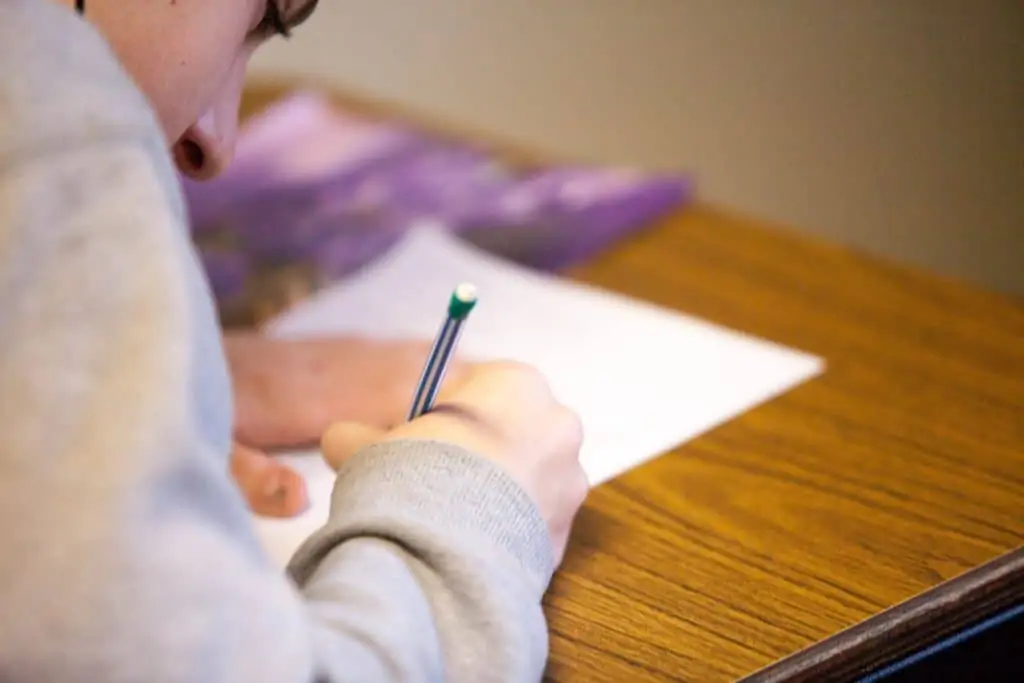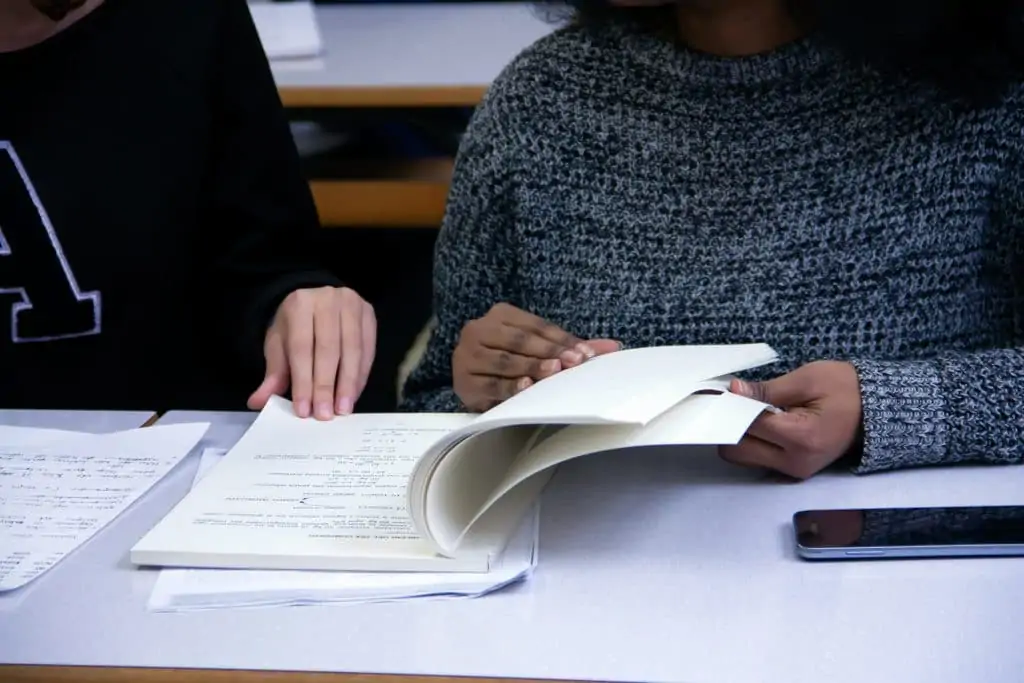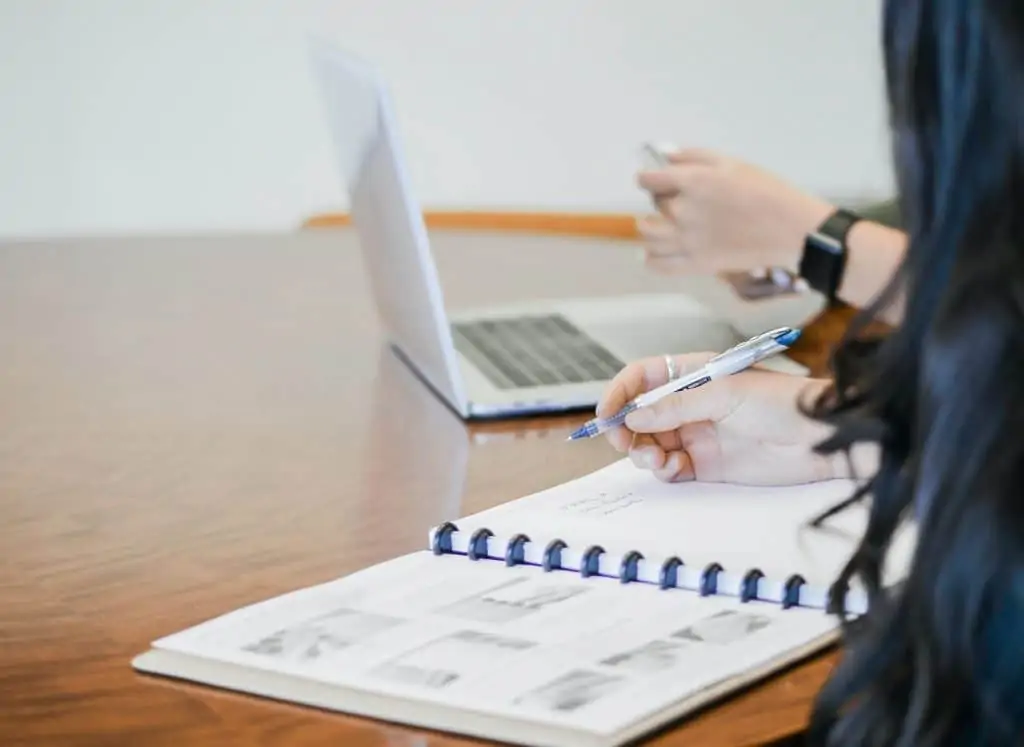Are you looking for the best ways to study and memorize information for your exams? Are you nervous about your finals and scouring the internet for last minute study tips? Do you desperately need direction on how to study for exams?
If any of these questions describe you, then you have come to the right place. No matter how old you get midterms, and final exams always bring about a sense of anxiety. No matter if you are in high school or college; the feeling only intensifies as the subject get harder. However, your fear is completely understandable. Cumulative tests like these are designed to test what you have learned throughout the semester or school year. They are generally multi-chapter tests with different content and formats. These exams require slightly different methods for studying and time requirements.
Though studying for finals can be a tedious and time-consuming task, sometimes starting early is not possible. No matter if you are looking to study for two weeks or the night before, this article will give you practical study tips for conquering your midterms or final exams.
Keep reading to get tips on how to ace your finals or midterms.
Effective Study Habits and Test-Taking Techniques for Exams
1. Start early and prioritize.
Procrastinating on studying for your final exams can ultimately be detrimental for your course grades. Generally, final exams and midterms hold substantial weight on your overall grade; therefore, starting to study as soon as possible is a must. This way, you also do not end up cramming the night before your exam. Create a list of all the final exams you must take as well as the times you must take them. Use this list and your confidence in the subject to prioritize your study time.
2. Underline or highlight the most critical information in each question.
Depending on the subject, some exam questions may be hard to follow. While taking your exam underline the most important pieces of information you will need to solve the problem or which will help you find the correct answer. This tactic will help to keep you focused on what exactly you are solving for and how to arrive at your solution. Also, watch for words like “not,” “except” or “all of the above.”
3. Eliminate the answers which you know are wrong.
When taking a multiple-choice test, it can be helpful to cross out the answers that you know are not correct. Narrowing down your choices makes it easier to choose the right answer. However, never eliminate a solution until you are sure.
4. Do not do your test in order.
Find the questions that you are sure you know how to do and complete them first. This strategy allows you to have a degree of confidence in the answers that you have as well as knowing that you are not wasting time staring at a question which may cause instead of answering them. For example, if all the questions you can answer are at the end of the test and you run out of time, there is a good chance that you will not do well on the test. If you answer the questions you know first, you are giving yourself an added cushion.
5. Skim through your exam before beginning.
Skimming your exam aids you in not only knowing what to expect from the exam but some later questions may also have clues that can be used to answer other problems on the test. For instance, if you are being asked to select the given slope of a line and you aren’t sure how to solve for the slope, however, you remember seeing a question which had the slope equation, use that to your advantage. If you figure this out later in the exam, you may not have as much time to go back and change your answer. Although this may not happen often, it is a possibility.
6. Check your answers after every page.
To ensure that your you have not made any glaring mistakes and to help save time, check over your answers as you complete each page of the exam.
7. Pay close attention to directions when taking your exam.
If you are unsure about what a question is asking or need some clarification, never be afraid to ask. Don’t be embarrassed about asking specific questions as your grade ultimately depends on how well you do on the exam.
 How to Create a Helpful Study Guide for Your Exams
How to Create a Helpful Study Guide for Your Exams
8. Gather all your relevant resources.
There are several resources you can use when creating your study guide. Before starting your study guide from scratch, check with your professor to determine if they will be providing one for you. If they will use this as a starting point for your new study guide. If they are not, use the information which will be on the test to guide you. Other resources you will need to create your study guide will be any class notes or handouts, homework assignments, your textbook, and previous exams. These items will be pertinent for creating a study guide which will be useful for your exam.
9. Organizing your study guide is essential to its usability.
Use a computer when creating your study guide as it will be easier to cut and paste the information rather than attempting to re-write it. Your study guide can be organized in several ways; however, the easiest way is to use a list. Your list should contain relevant information and critical terms organized by headers and subheading for readability. Be concise and specify the information which comes from your textbook as it may be different from something your instructor mentioned. For example, if you received two slightly different definitions for the same terms, make a note of both and label them accordingly. Other types of study guides include summaries and concept/topic maps.
10. Use your study guide in the highest capacity.
After you have created your study guide, it is critical that you know how to use it successfully. Merely reading your study guide will not help (though close reading strategies can). Use the list below for ways to effectively study from your study guide.
– Ask a friend or your study buddy to quiz you on terms and concepts.
– If you are studying alone, attempt to quiz yourself by stating a term and trying to recite the answer. Use a blank sheet of paper to cover up the correct answer.
– Use your study guide to create flashcards. On one side of the card place, the concept name or keyword and on the opposite side, write the definition. These can be used alone or within your study group.
11. If you are a visual learner use color coding to draw your eye to the right information, color coding can be done by section or can be used to place emphasis on vocabulary words, phrases or even names.
 How to Study for Exams in One Month Tips and Techniques
How to Study for Exams in One Month Tips and Techniques
This calendar will aid you in staying organized as you prepare for one or multiple exams. Your study calendar should include the dates of your exams as well as blocks for studying for each course. Each study block should also include objectives or goals for the given study session. There is nothing worse than sitting down to study and not knowing where to begin. Your schedule should ideally flow with the same plan as your course. For example, if you covered chapters in numerical order, you should study in the same manner.
13. Schedule any tutoring sessions or office hours with your professor.
If there are items that you are still struggling with, make sure that you take the time to meet with a tutor or your professor well before the exam. This gives you time to not only review the material with someone else but to also practice the techniques or skills that you reviewed.
14. Form a study group or find a study buddy.
Study groups allow you to retain more information in a shorter period. They also allow you to bring together people with various study styles, notes, and problem-solving skills. Your study group also allows you to share your talents with each other. Someone in your study group may be reliable in an area that you are weak in and pass that knowledge on to you. Your study group ideally should not include more than six people. If you are not a fan of large study groups finding a single study partner is also an option which brings about similar benefits. Partners and groups also make studying more enjoyable and less of a necessary task as well as providing you with a support system. Your study group should meet regularly, and everyone should be committed to it to ensure the success of the group.
15. Find the right study space.
There are several places which may be accessible for you to study in but being available doesn’t make them right. Find someplace where you a comfortable, can handle the noise level and ultimately productive. The library is not always the best place to study, and your location will eventually depend on your necessity. Do you want to be able to bring food? Do you like to study with or without headphones? Are the location’s hours conducive to my needs? These are questions you should ask yourself when looking for a place to study. Some example spaces include the following.
– Coffee shops
– Dorm or bedrooms
– University common areas
– Kitchens
– Library
We wrote about the best places to study here.
 How to Study for Exams in 2 Weeks Tips and Strategies
How to Study for Exams in 2 Weeks Tips and Strategies
16. Take walks between study sessions.
As you get closer to your exam, it is essential to ensure information is committed to memory. Cardio aids in improving your memory. Short walks or even dancing may aid in keeping your brain functioning at its fullest potential.
17. Stay on top of your time management.
To ensure you don’t end up cramming make sure you stay on top of your study calendar and overall study schedule.
18. Take practice exams.
After two weeks of studying, you should be able to complete a practice exam successfully. Practice tests are a great way to get a feel for the format of your final as well as see what information you are still struggling with. Use questions from previous exams or quizzes to create your practice exam. If you are looking for more of a challenge, form your questions using your study guide and notes. Creating the problems is a great way to keep information fresh on your mind.
19. Make connections between your own surroundings or life and the information you are reading.
Being able to connect the material you learn to an everyday location or event is a great way to commit it to memory. If you are a person who uses flashcards for studying it may be beneficial to place flashcards in different areas of your home or room which correspond to different concepts or topics. When taking your exam, you may be able to recall the information based on where you were when you read it.
20. Create songs or abbreviations which aid you in remembering formulas or concepts.
A mnemonic device is a memory association tool which can be used for anything. “Never eat sour watermelon” is a phrase used to aid children in remembering their directions. The beginning letter of each word corresponds to a different direction. Songs can also be made to fit your favorite beats to ensure they are committed to memory.
21. Ask questions for clarification.
By now you should know what items you are still unsure about. Ask your instructor or classmates for any clarification on topics you are still uncertain about.
22. Set aside more time for studying as your exam gets closer.
As you get closer to your exam, you will want to set aside at least 4 to 6 hours of time to focus on your upcoming final. Alter your time table to ensure that you are getting enough study time and make sure that you are strictly following it. If you are confident in the subject which you are studying for 4-6 hours may not be needed. You will need to gauge your time based on your need. Allocate more time to the subjects which will require more effort for you.
 How to Study for Exams in One Day Tips and Techniques
How to Study for Exams in One Day Tips and Techniques
23. Review, review, review.
On the day before the exam, you should not be creating new study guides or introducing any further information into your arsenal of study materials. Take a few hours to review your study guides or any notes you have been using for the final exam.
Many people underestimate the necessity of getting a good night’s rest. Final exams and midterms are two of the most stressful tests to take. You do not want to fall asleep mid-test or not have your brain operating at its fullest capacity while you are taking them. You want to make sure you fresh and ready for whatever the test throws at you.
25. Calculate the score you need to get the grade you desire.
Before taking your exam, many teachers should have already given out your current grade in the course. Make sure that you review your syllabus for any grading scale information and react accordingly. Use this grade, the weight of the test and the grade you are shooting for to determine what you will need to score on your final exam to get your ‘A,’ ‘B’ or even ‘C’ in the course. This will keep you focused and motivated during the exam. Going in blindly can be potentially detrimental to our final grade.
Your final exam or midterm is your last chance at getting the grade you desire. Although some instructors offer to curve grades based on performance, this is not the case for all. Therefore, it is imperative to know the material that your test is covering.
Starting early with, your studying is essential to performing well. Our one-month final exam study tips are a great way to get you started with the studying process. Making a schedule and going for tutoring are two necessary tasks that you should consider if you are struggling with the material or are taking multiple final exams. As time gets closer to your test date, you will want to alter your studying methods to fit the time you have left. Creating practice exams or studying with friends are great ways to determine how much information you are retaining as your test date gets closer.
Final exams are not meant to be easy. They are intended to challenge you and make sure that you have been keeping up all semester long. Don’t be afraid to ask questions and remember to keep your mind stimulated. Although it is essential to study, it is just as important to perform well on the day of the exam. These tips and strategies are surefire ways to get you the grades you deserve. You can use these tips for more than just midterms and final exams but also tests taken throughout the school year. Another tip is to use a system like Anki to study effectively.
If you found this list of comprehensive exam study tips helpful, you may also find our post on how to ace a test helpful as well.





 How to Create a Helpful Study Guide for Your Exams
How to Create a Helpful Study Guide for Your Exams
 How to Study for Exams in One Month Tips and Techniques
How to Study for Exams in One Month Tips and Techniques
 How to Study for Exams in 2 Weeks Tips and Strategies
How to Study for Exams in 2 Weeks Tips and Strategies
 How to Study for Exams in One Day Tips and Techniques
How to Study for Exams in One Day Tips and Techniques


